While early travellers and explorers in Africa tended to ‘extract’ cuisine from its social and cultural context, thus walling off dishes as specific and secularized recipes, missionaries often did not. Perhaps due both to their lengthy stays in one region as well as to their focus on sacred as well as secular aspects of the people with whom they lived, their descriptions of rituals and related recipes are sometimes characterized as having fluid boundaries.
We have seen such fluid boundaries in the following entries:
- The Magicality of Cuisine 1: Meat Cooked in Plantain Leaves as a Love Philtre, 19th Century Gabon, West Africa
- The Magicality of Cuisine 2: A Recipe for a complicated Love Filtre for Men. 19th Century Gabon
In the first instance, the recipe, which is part of a woman’s love charm, emphasizes the food aspects that are integrated with specific magical aspects. In the second entry, food items are very specific but minimal, whereas the magical steps involved in the preparation are emphasized.
Today’s entry focusses on a magical dish for fishermen, as explained by Rev. Nassau (reference below; recipe-type template added to the original text):
Fishing was an integral aspect of daily life in the Ogowe River watershed and surrounding areas in which Rev. Nassau lived and worked. The following recipe addresses the serious business of guaranteeing success to a fisherman. Both magic and food are emphasized and the steps involved are very specific:
- Go in the morning early while the rest of the villagers are asleep, to an adjacent marsh or pond. (Almost all African villages are built on or near the bank of some stream or lake.)
- Find a place where pond-lilies are growing.
- Wade into the pond, bend low m the water, and pluck three lily-pads.
- There are water-spiders, called “ mbwa-ja-miba” (dogs of the water) generally running over the surface of the water at such places; catch four of them.
- Gather also leaves of another water-plant called “ngama.”
All these articles leave in the village in a safe place.
When other fishers come in from the sea, go to the beach to meet them; and if they have among their catch a certain fish called “hume,” having three spines, beg or buy it.
- This you are to dry over the fire.
Watch the daily fishing until some one has killed a sharkobtain
- Its heart, which also is to be dried.
- Take also a plate full of gourd seeds (nganda) and some ground-nuts (mbenda) •
- also five “fingers” of unripe plantains cut from the living bunch on the stalk, and
- a tumblerful of palm-oil.
All these above-named ingredients are to be mixed in one pot (which must be earthen) and are to be cooked in it.
- While the mess is boiling, sit by, face over the pot, in the steam rising from It, and speak into the pot,
- “Let me catch fish every day! every day ! “
- No people are to be present, or to see any of these proceedings.
- Take the pot off the fire, not with your hands, but by your feet, and set it on the ground
- Take all your fish-hooks, and hold them in the steam arising from the pot.
- Take a banana leaf that is perfect and not torn by wind, and laying it on the ground, spread out the hooks on it.
- Then eat the stewed mess, not with a real spoon, but with a leaf twisted as a spoon.
- In eating, the inedible portions, such as fish-bones, skins, rind, and so forth, are not to be ejected from the mouth on the ground, but must be removed by the fingers and carefully laid on the banana leaf.
- Having finished eating, call one of the village dogs, as if it was to be given liberty to eat the remains of the mess.
- As the dog begins to eat, strike it sharply, and as the animal runs away howling, say,
- “So! may I strike fish!
- Then kick the pot over.
- Take the refuse of food from the banana leaf, and the hooks, and lay them at the foot of the plantain stalk from which the five ” fingers ” were cut.
- Leave the pot lying as it was until night.
- Then, unseen, take it out into the village street, and violently dash it to pieces on the ground, saying,
- “So! may I kill fish!”
- It is expected that the villagers shall not hear the sound of the breaking of the vessel ; for it must be done only when they are believed to be asleep.
- When the bunch of plantains from which those fingers were taken ripens, and is finally cut down for food by others, you are forbidden to eat not only of it, but of the fruit of any of its shoots that in regular succession, year after year (according to the manner of bananas and plantains), take the place of the predecessor stalk.
- You may never eat of their fruit.
Source – Fetichism in West Africa; Forty Years’ Observation of Native Customs and Superstitions, by the Rev. Robert Hamill Nassau. University Press, Cambridge, U.S.A. 1904.
* * * * *
Notes on less well-known ingredients of the recipe –
- Lily-pads – the rhizome of the lily is widely eaten in sub-Saharan Africa and Asia; the leaves can also be eaten in stews and soups.
- Leaves of the water-plant called ngama – I cannot find the translation of this plant; perhaps it is watercress or a similar tasty herb.
- Water-spiders – various insects are consumed throughout Africa, as discussed elsewhere in this blog.
- The following fish, Icannotidentify:
- hume
- sharkobtain





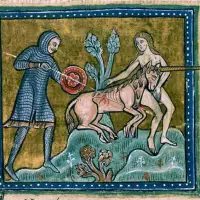
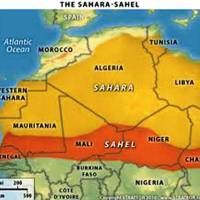
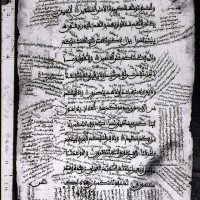
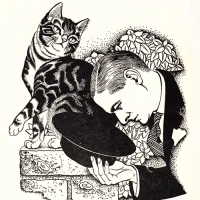

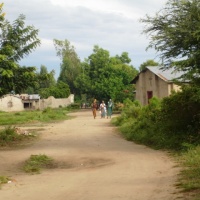

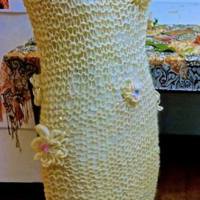
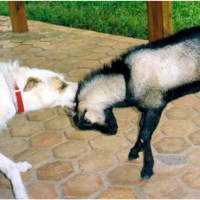
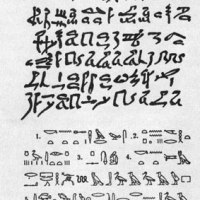













Pingback: Missionaries in Nineteenth Century Africa – A Few Considerations | DIANABUJA'S BLOG: Africa, The Middle East, Agriculture, History and Culture
Pingback: Sacred Huts and Magical Aspects of Food | DIANABUJA'S BLOG: Africa, The Middle East, Agriculture, History and Culture
Pingback: The Magicality of Cuisine 5 – A Spicy Warriors’ Stew, Gabon West Africa | DIANABUJA'S BLOG: Africa, The Middle East, Agriculture, History and Culture
Pingback: The Magicality of Cuisine 4: Feeding the Soil a Stew of Leaves and Bark to Guarantee Successful Gardening, 19th Century Gabon, West Africa | DIANABUJA'S BLOG: Africa, The Middle East, Agriculture, History and Culture
Wonderful Interesting post as always Diana. I love to read about the culture of other countries and you excel with all your descriptions of these people. Thank you for sharing.
LikeLike
Thank you so much for your kind remarks, Rita; I do try and provide dimensions of other people and their ways of life that might not normally be seen.
LikeLike